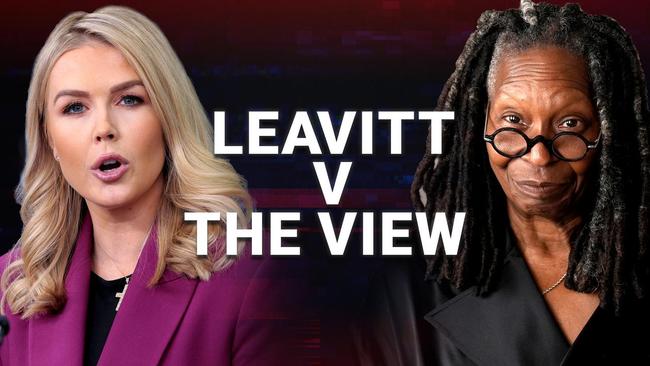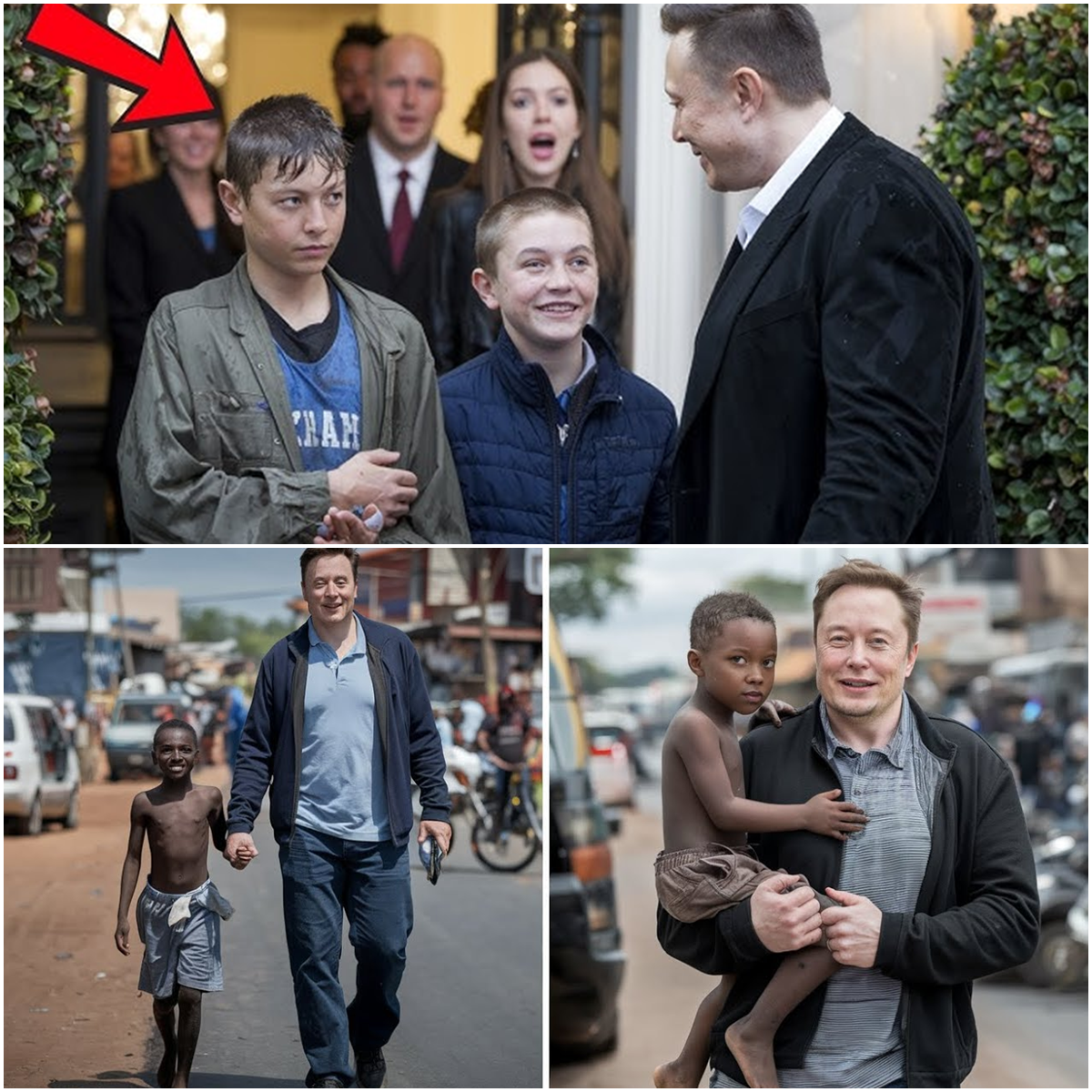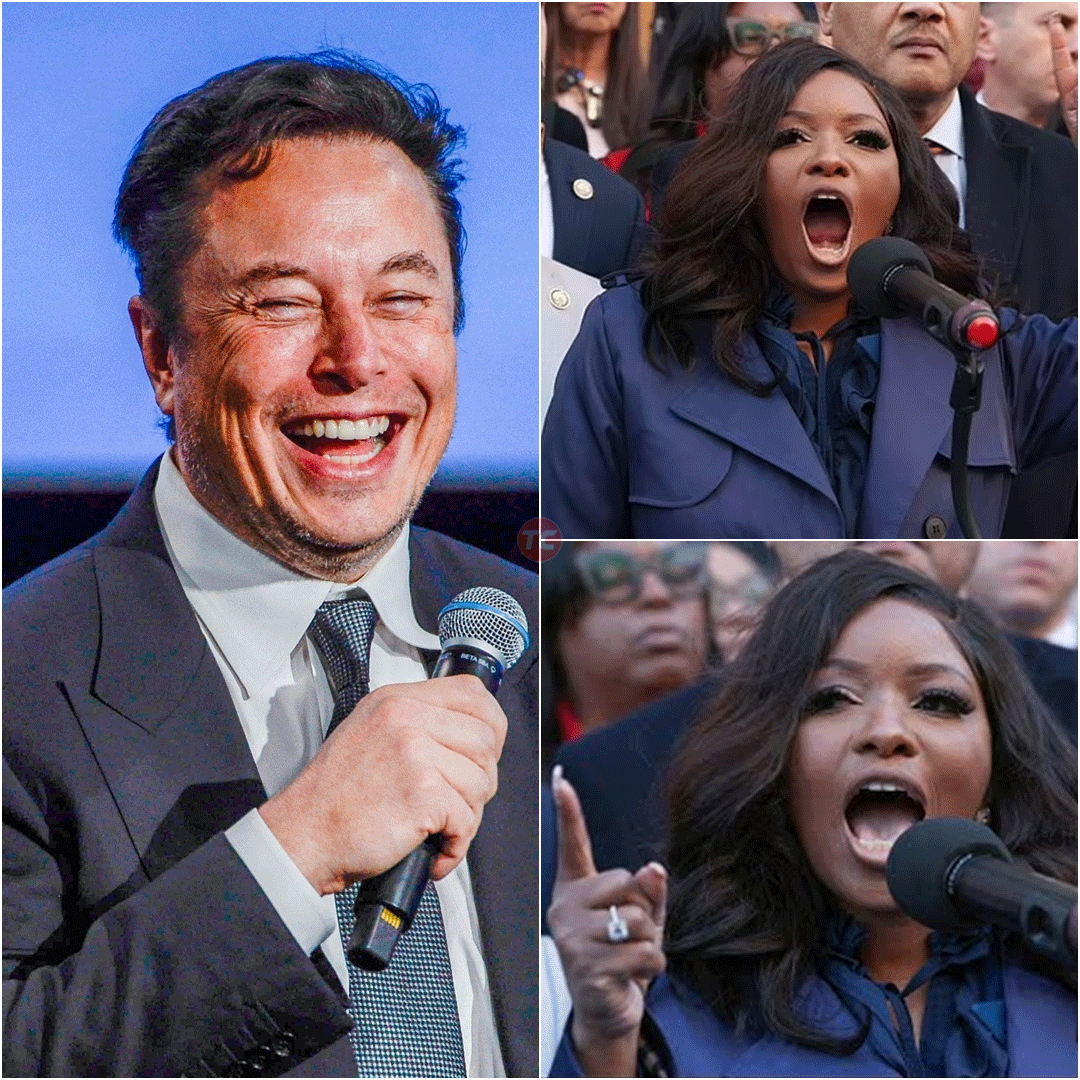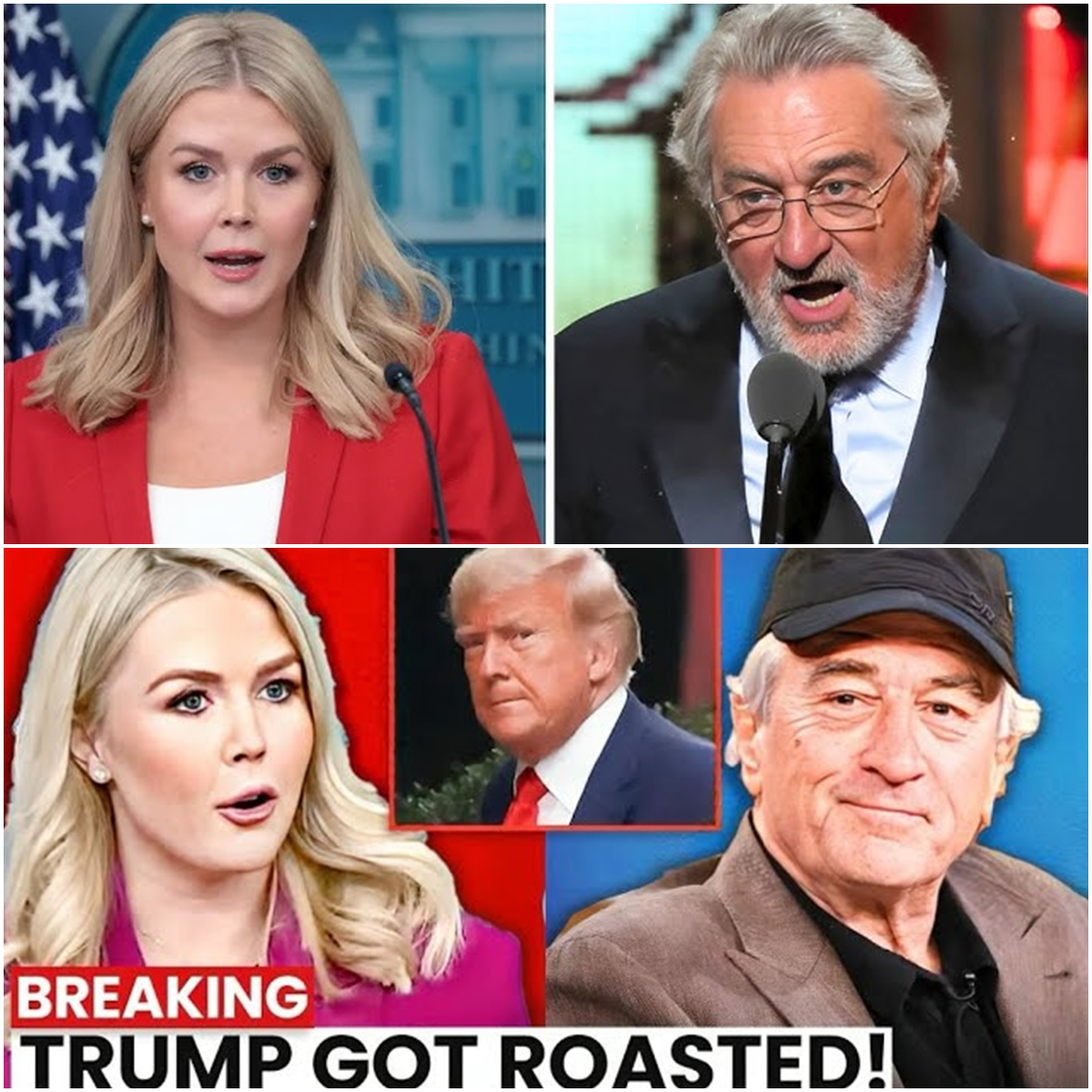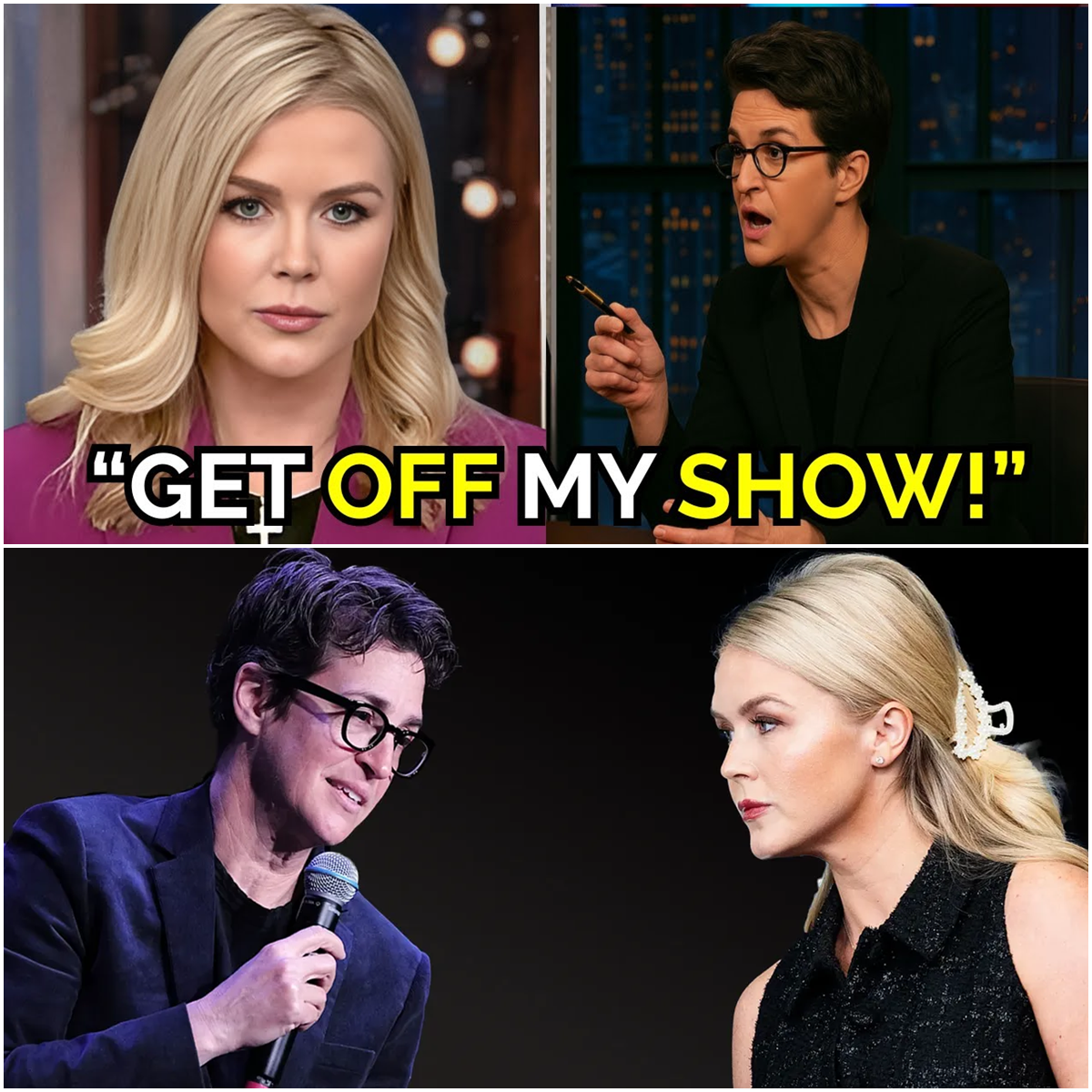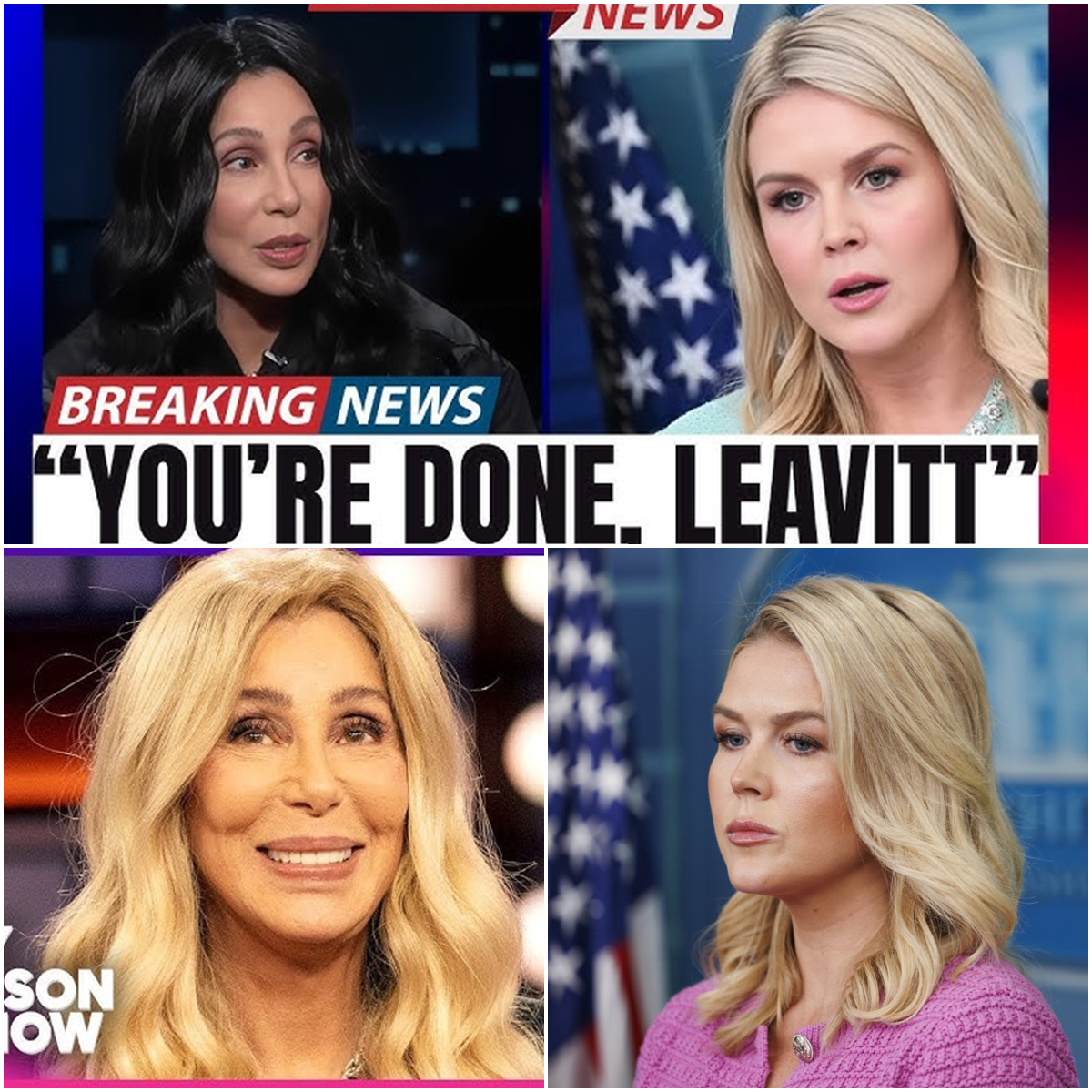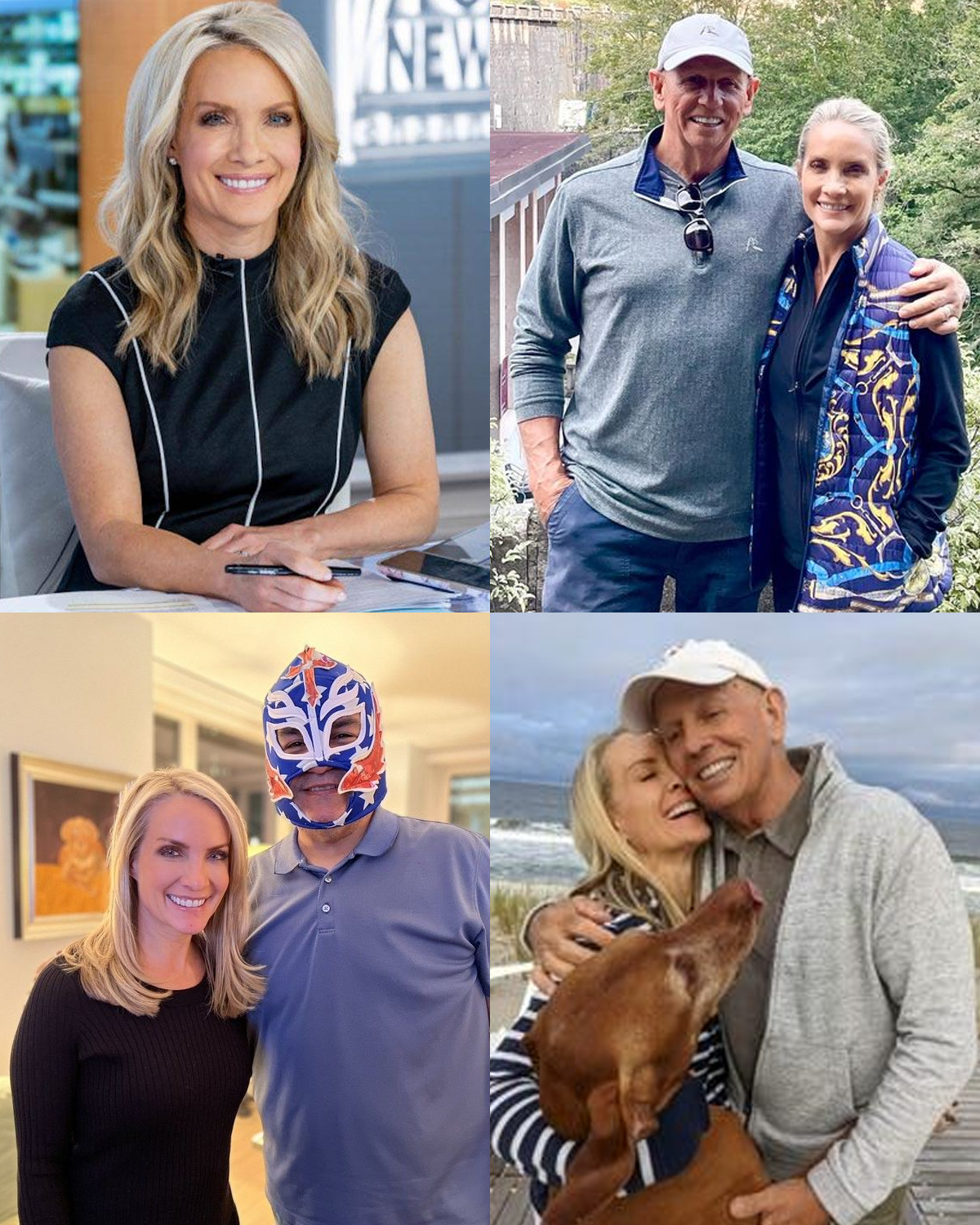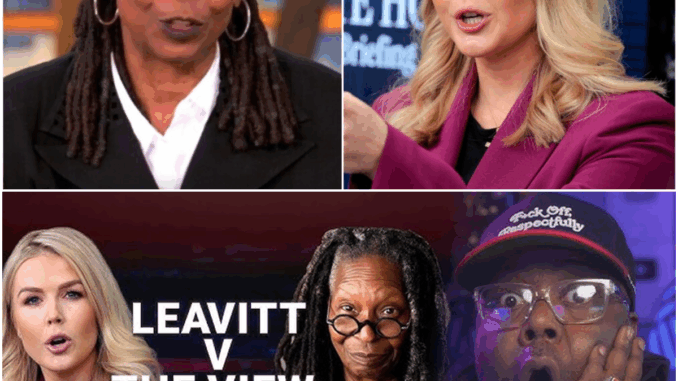
In a shocking and polarizing moment on live television, Karoline Leavitt, a rising political figure, called for a boycott of the popular daytime talk show The View. Her statement, delivered with conviction and unfiltered candor, quickly ignited a firestorm of controversy. What made the incident even more incendiary was the reaction from fans—many erupted in cheers and flooded social media with praise, with some making the deeply troubling claim that The View is “a show that should not have Black people.” This explosive mix of race, politics, and media representation has stirred intense debate across the nation.
The Moment That Shook Daytime TV
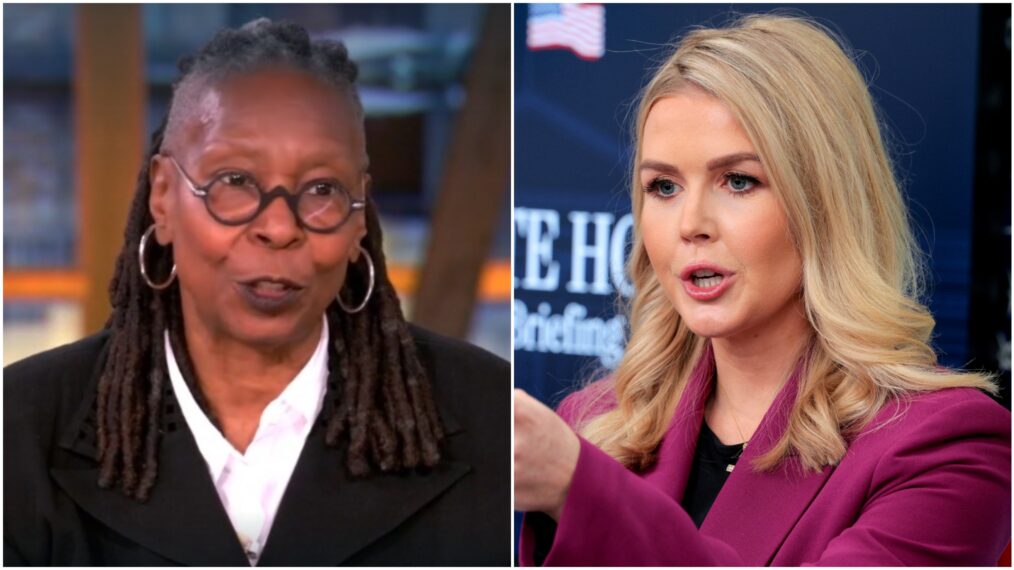
Leavitt’s boycott call came during a live broadcast of a political commentary show, where she criticized The View for what she described as “biased and divisive rhetoric.” She argued that the show no longer serves as a platform for balanced discussion but instead promotes what she called “identity politics” that alienate large segments of the American audience. Her words struck a nerve, especially when she suggested that the show’s casting choices contribute to its divisiveness.
The statement was met with immediate backlash from The View’s hosts and supporters, who condemned Leavitt’s remarks as not only unfair but also racially charged. Yet, the real shock came from the fan response. Social media exploded with hashtags supporting the boycott, and some comments went further, explicitly stating that The View “should not have Black people,” a phrase that sent waves of outrage through civil rights groups and media watchdogs.
The Controversy: Free Speech or Racism?
At the heart of this controversy lies a complex and uncomfortable question: where is the line between legitimate criticism and racial insensitivity? Leavitt’s supporters argue that she exercised her right to free speech and called out what they see as a media echo chamber that no longer reflects diverse viewpoints. They claim that The View has become a platform for a particular political and cultural agenda, and that calling for a boycott is a valid form of protest.
On the other hand, critics accuse Leavitt of dog-whistling racial animus and emboldening racist sentiments. The phrase “a show that should not have Black people” is undeniably inflammatory and has been condemned as overtly racist. Many argue that such rhetoric deepens divisions and undermines efforts toward inclusivity and representation in media.
The Role of The View in American Media
The View has long been a lightning rod for cultural and political debates. Known for its diverse panel and candid discussions, the show has championed voices from various backgrounds, including Black women who have become influential media figures. To many, The View represents progress in media representation and a platform for marginalized voices.
However, detractors argue that the show’s format often devolves into partisan bickering and identity politics, alienating viewers who seek more nuanced conversations. Leavitt’s boycott call taps into this dissatisfaction, but the racial undertones of the fan reactions complicate the discourse, raising questions about how race and politics intersect in public media.
Social Media: Amplifier of Praise and Prejudice
The fan reaction on social media has been a double-edged sword. While some praise Leavitt for speaking “truth to power” and challenging what they perceive as media bias, others have used the moment to express openly racist views. This polarization exemplifies the current media environment, where social platforms amplify both legitimate grievances and harmful rhetoric.
The backlash against the racist comments has led to calls for greater accountability on social media platforms and renewed discussions about the responsibilities of public figures in shaping discourse.
What This Means for Media and Society
Karoline Leavitt’s live boycott call and the ensuing fan eruption reveal deep fissures in American society. They expose how media representation, race, and politics are deeply entangled and how quickly discourse can spiral into controversy. The incident challenges us to reflect on the values we want in our media: diversity, fairness, and respect—or division, exclusion, and hostility.
It also highlights the power and peril of live television and social media in shaping public opinion. When influential figures speak, their words carry weight, but they also risk inflaming tensions if not handled responsibly.
Conclusion: A Moment to Reflect and Reconsider
The controversy surrounding Karoline Leavitt’s boycott call is more than just a media spat—it’s a mirror reflecting America’s ongoing struggles with race, representation, and political polarization. While criticism of media is healthy and necessary, it must be separated from rhetoric that fuels division and racism.
As the nation watches how this story unfolds, one thing is clear: the conversation about who belongs in the media spotlight and how they are represented is far from over. It’s a debate that demands thoughtful engagement, not knee-jerk reactions or inflammatory statements.
Only by confronting these difficult issues head-on can society hope to move toward a media landscape—and a country—that truly embraces diversity, dialogue, and understanding.
